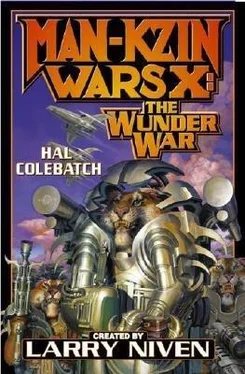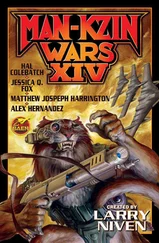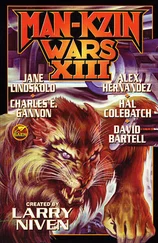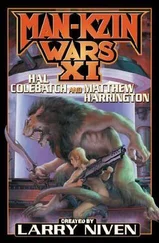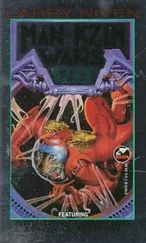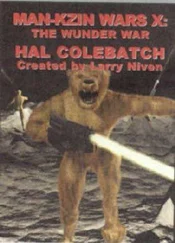“He didn't write them as poetry, but as literary artifacts in a short story. Still, they can set one on a certain train of thought.” I knew enough of his manner of rhetoric to know that when he spoke again it would be to quote something he had picked for a reason.
“You are not on the road to Hell,
You tell me with fanatic glee:
Vain boaster, what shall that avail,
If Hell is on the road to thee?”
Did he let that last line linger in the air between us for a moment? His glance turned to the blank faces of his computers, and in the soft lighting I seemed to catch something strange there. But it passed. “We—the church, that is—have survived by being ultra-orthodox, archaically conservative,” he said musingly. “Heresy comes too easily if you give it a chance, especially when it takes the fastest message four and a half years to travel between us and Rome. And heresy means disintegration.
“We know our own history. The church very nearly died of tolerance once. Space travel and the scientism that went with it looked like killing us, but it may have been the saving of us instead. We religious weren't backward in getting into Space, you know. The first religious figure to set foot on a new world was an Episcopal lay preacher named Buzz Aldrin.
“As for us, there's a stained-glass window in our chapel with a likeness of Father George Coyne, the director of the Vatican Observatory, who applied for astronaut training in the 1960s. His Provincial is said to have muttered, 'If I let you become an astronaut, George, every priest will want to.' He had a point there. A priest, Georges Lemaitre, first postulated the Big Bang. No, we've never been hostile to space and space travel, far from it. But perhaps that renewal was a miracle, an unlooked-for one, like almost all real miracles.”
“You believe in miracles?”
“Officially.”
“But not actually?”
“We've been here a long time. And I'm not young. The faith flickers sometimes. But you can't cross space without feeling the vastness of the Creation and the insignificance of mankind compared to whatever made it.
“Also,” he said after a moment, “conservatism justifies my own comfort.”
“It's a good life cut off from the world, you mean?”
“Yes. Not so much better here as it might be on Earth, I suppose. Wunderland still has plenty of room. That's partly how I justify it and don't think I'm just a fat selfish old man. We are keeping something alive.”
He fell silent again. I nodded.
“The Church didn't only come to Wunderland to minister to the people here,” he said suddenly, “though of course that would have been more than reason enough. Some hoped we would renew ourselves. I know some say we're in the pockets of the Nineteen Families, but we came here independently—at very considerable cost. I'm told it almost bankrupted the Vatican. It had to be done, particularly as we knew our… competitors… were aboard the original slowboats.”
“What? You mean the Protestants?”
“No,” he said, with a sudden harsh bleakness in his voice that I had not heard before. “Not the proddys, who we've got on with fairly well for centuries now. And not you Masons either, by the way.”
“You know about that?”
“Of course. And the church's anathema still holds, you damned syncretist! I also know most of you are well-intentioned, though if you'll forgive me saying so, some of you may in sober truth be playing with a hotter fire than you know. But I'm getting off the point: when we left Earth, some of us thought it would be for our own good as well as that of our new flock…
“We did renew ourselves, I think, for a while, but… Of course, I have to run this place in the world. I've some idea of the political stresses gathering now. But they are hardly enough to drive people back to the church.”
Although machines and farming robots grew or manufactured most of our food, land which had appeared unlimited when the first colonists had arrived had made for a largely rural culture: a gentle, easy one unlike the hard work and bloody realities of farmers of ancient times, but one that kept us in touch with seasons and open spaces. Despite our heritage of space travel and our modern technology, it made us conservative in many ways—worse than conservative, according to some, though others applauded it. Cities had grown slowly and were still tiny compared to the megalopolises of Earth. But with the establishment of those cities, land values had changed. People had changed too.
The rural life was fine in theory for many but city life was more convenient and exciting in practice. When, after its long gestation as a mere landing field and administrative headquarters, München had begun to look like a real city (it had taken many years for the permanent population to reach a thousand), it had begun attracting natural urbanites and had grown faster and faster. However good communications and virtual reality might be, people wanted to be close to things, and some people wanted to be close to other people. An ancient expression about “rural idiocy” had been resurrected.
The university had been one of the first people-magnets. Some students had wanted cafés and classrooms with other students rather than computer screens in solitary farmhouses. For an eighteen-year-old, the best VR communication with girlfriend or boyfriend lacks a certain something. The university population alone was more than twenty thousand now. Of course it was mainly science subjects that were studied, both pure and applied—the new mathematical transform alone had caused a whole new department to be set up—but there was a growing culture of the humanities as well. A colleague in the literature department had told me that a new poetic movement was writing of rural life with nostalgia. With an urban population growing rapidly, a growing business and professional class and stronger unions, the Nineteen Families were feeling their hegemony challenged as never before. Threat was making them tighten their grip. We still, if one looked at Earth history, had few police even for our population, but I wondered that night how long that situation was going to last.
The increasing political bickering seemed foolish and far away in that pleasant room.
“You won't go out to the people?”
“Do you mean us monks or the church as a whole? That's work for the secular orders. But the Church can't compromise too much on this world. We went that way once on Earth and nearly lost everything. Still, we've lasted twenty-four hundred years and more. Just. I have faith we'll survive… Faith, after all, is my business. Mark you, without being too hypocritical, I do feel the absence of any sort of… test.”
“Test? I don't understand.”
“I'm not sure I do, either,” he said. “Just that I sometimes know things are too comfortable here.”
“I didn't know they could be too comfortable.”
“It's not a material thing. Not necessarily.”
I noticed now an unrepaired crack in the stonework behind the abbot's head. It looked deep and old. Through the window behind him I could see what I knew were the monks' living quarters. Half at least of the rooms were empty now and dark. There was a small pane of glassine missing in the window. I wondered if the old man's faith in their survival was misplaced and hoped it wasn't.
We were proud of our differences from Sol system's rather coldly technological order, from the Sol Belters and their descendants in our own Serpent Swarm, with their slightly inhuman efficiency, and from Earth's crowding and regimentation and its—albeit we were told, largely benevolent and inevitable—control. We esteemed a lot of our own archaisms, including a freedom that Earth would probably have considered anarchical, but were we doing enough to preserve them?
Читать дальше
